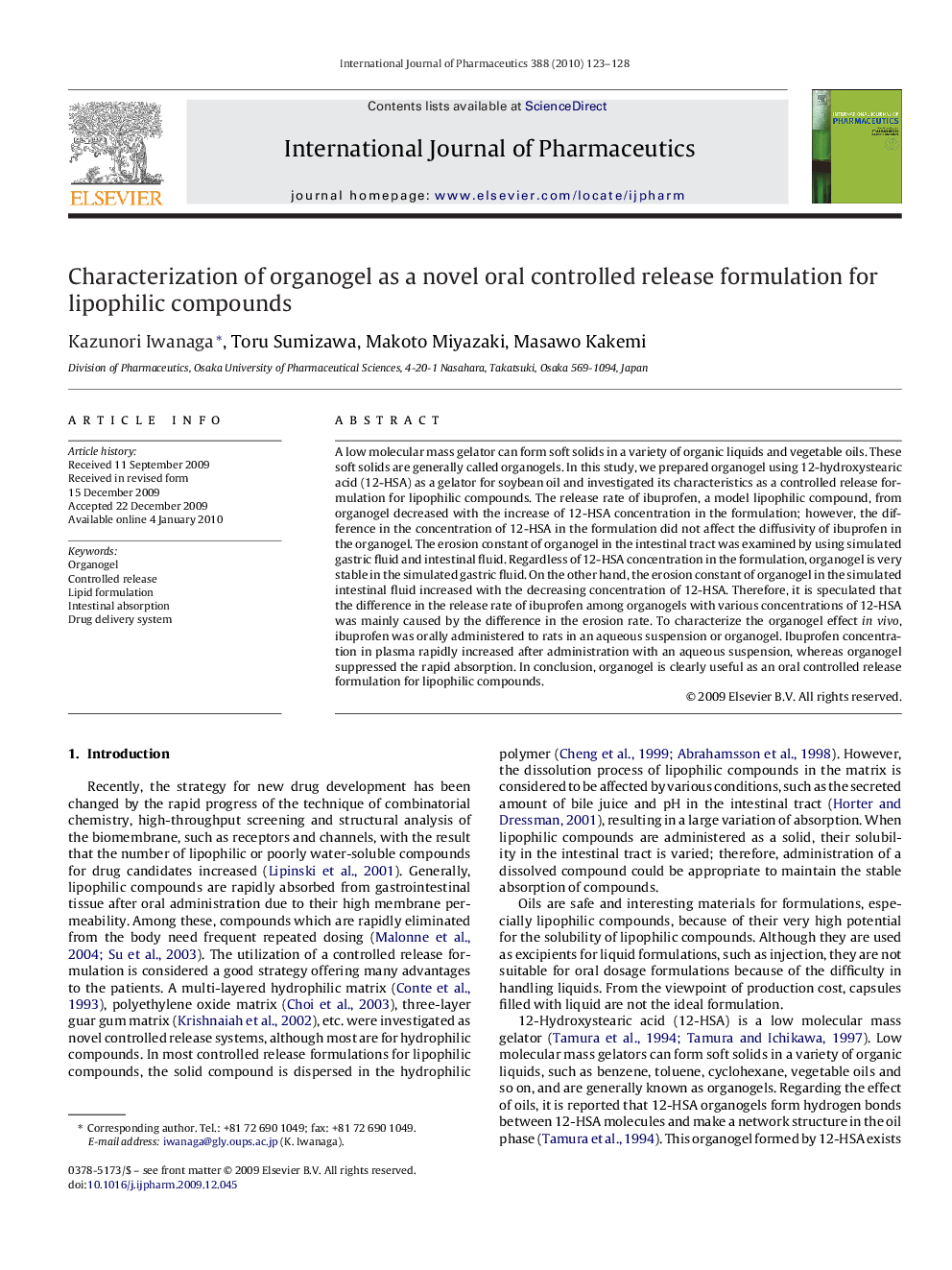| Article ID | Journal | Published Year | Pages | File Type |
|---|---|---|---|---|
| 2504407 | International Journal of Pharmaceutics | 2010 | 6 Pages |
A low molecular mass gelator can form soft solids in a variety of organic liquids and vegetable oils. These soft solids are generally called organogels. In this study, we prepared organogel using 12-hydroxystearic acid (12-HSA) as a gelator for soybean oil and investigated its characteristics as a controlled release formulation for lipophilic compounds. The release rate of ibuprofen, a model lipophilic compound, from organogel decreased with the increase of 12-HSA concentration in the formulation; however, the difference in the concentration of 12-HSA in the formulation did not affect the diffusivity of ibuprofen in the organogel. The erosion constant of organogel in the intestinal tract was examined by using simulated gastric fluid and intestinal fluid. Regardless of 12-HSA concentration in the formulation, organogel is very stable in the simulated gastric fluid. On the other hand, the erosion constant of organogel in the simulated intestinal fluid increased with the decreasing concentration of 12-HSA. Therefore, it is speculated that the difference in the release rate of ibuprofen among organogels with various concentrations of 12-HSA was mainly caused by the difference in the erosion rate. To characterize the organogel effect in vivo, ibuprofen was orally administered to rats in an aqueous suspension or organogel. Ibuprofen concentration in plasma rapidly increased after administration with an aqueous suspension, whereas organogel suppressed the rapid absorption. In conclusion, organogel is clearly useful as an oral controlled release formulation for lipophilic compounds.
